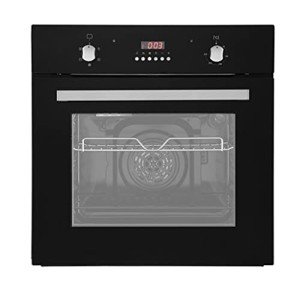The Integrated Cooker: A Comprehensive Guide to Modern Cooking Solutions
The evolution of kitchen appliances has actually transformed cooking and cooking methods, making meal preparation more efficient and enjoyable. Among these innovations, the integrated cooker sticks out as a versatile and space-saving addition to modern kitchens. This short article looks into the various aspects of integrated cookers, including types, advantages, functions, and a contrast with conventional cooking approaches.
What is an Integrated Cooker?
An integrated cooker is a compact cooking home appliance that integrates multiple cooking functions into one unit. Often built into kitchen cabinetry, these cookers are created to save space while enhancing kitchen aesthetic appeals. They usually integrate a variety of functionalities, such as baking, barbecuing, steaming, and even pressure cooking.
Secret Features of Integrated Cookers
- Multi-Functionality: Integrated cookers can perform different cooking tasks, getting rid of the need for several appliances.
- Space-Saving Design: These cookers fit flawlessly into kitchen systems, making them ideal for modern-day homes with restricted space.
- Advanced Technology: Many integrated cookers come equipped with wise innovation, such as programmable settings, touch-screen controls, and connectivity alternatives.
- Energy Efficiency: Built with contemporary materials and design, they frequently take in less energy compared to conventional cooking techniques.
Types of Integrated Cookers
The market offers different types of integrated cookers, each with its distinct set of features and performances. Here are the most typical types:
| Type | Description | Example Use |
|---|---|---|
| Built-in Ovens | Ovens that are suited wall units or cabinetry | Baking bread, roasting meats |
| Induction Hobs | Cooktops that utilize electro-magnetic energy to heat pots and pans | Quickly boiling water, sautéing |
| Steam Ovens | Appliances that cook food using steam for much healthier outcomes | Steaming veggies, fish |
| Microwave Ovens | Integrated microwaves for quick heating and cooking | Reheating leftovers, making popcorn |
| Combination Ovens | A mix of standard and steam cooking innovations | Baking while ensuring wetness retention |
Advantages of Using Integrated Cookers
Integrated cookers supply a host of advantages over conventional cooking tools. Below are some of the crucial benefits:
- Space Efficiency: Ideal for compact kitchens, integrated cookers use vertical spaces successfully.
- Streamlined Cooking Process: With multiple functions offered, users can transition from one cooking approach to another with very little effort.
- Improved Aesthetics: Many integrated cookers can be found in sleek designs that mix well with modern-day kitchen decor.
- Improved Cooking Control: Programmable functions permit for exact cooking, making sure much better meal outcomes.
Integrated Cookers vs. Traditional Cooking Appliances
When thinking about meal preparation alternatives, it is important to weigh the benefits of integrated cookers against traditional cooking appliances. Below is a comparison chart:
| Feature | Integrated Cooker | Conventional Appliances |
|---|---|---|
| Space Efficiency | High | Lower |
| Multi-Functionality | Yes | No (requires several appliances) |
| Energy Consumption | Frequently lower | Can be higher |
| Cooking Speed | Faster (especially with induction) | Varies |
| Design | Modern and smooth | Varies commonly |
The integrated cooker is a forward-thinking appliance that satisfies the demands of today's hectic way of life. Its multiplicity of functions, space-saving design, and sleek visual appeals make it a worthwhile financial investment for any modern-day kitchen.
For those seeking to save time, space, and effort in meal preparation, integrated cookers use an excellent service that boosts the cooking experience while providing tasty, well-prepared meals.
Often Asked Questions (FAQs)
1. What is click web page of an integrated cooker?
The price of integrated cookers can differ commonly, typically ranging from ₤ 500 to ₤ 3,000 depending upon features, brand, and size.
2. How much maintenance do integrated cookers require?
Maintenance typically consists of regular cleansing of surface areas and looking for any software application updates if they feature wise innovation. It's recommended to follow the producer's standards.
3. Can I replace my existing oven with an integrated cooker?
Yes, integrated cookers can often change traditional ovens, but it is vital to seek advice from with an expert to ensure compatibility with your kitchen layout.
4. Are integrated cookers hard to install?
Setup can be simple for those with DIY experience. However, working with a qualified service technician is recommended to make sure correct setup.
5. Who benefits most from using an integrated cooker?
Households, time-pressed individuals, and those residing in compact houses especially take advantage of the multi-functionality and space-saving design of integrated cookers.
In this age of benefit and performance, integrated cookers are redefining how we approach cooking. Whether you are a skilled chef or a cooking novice, integrating this effective home appliance into your kitchen can significantly boost your cooking experience.

